Fayetteville VA Praised,
Vets Want Specialty Care Improvement
By Chase Reavis and Alex Nicoll
The Razorback Reporter
FAYETTEVILLE, Ark. — Amid a nationwide push to improve veterans’ health care, Fayetteville-area veterans say they receive quality service at the Veterans Health Care System of the Ozarks, but some express frustration with delays for more complex specialty care.
Derrick Calhoun, 24, a University of Arkansas senior and president of the Razorback Student Veterans, said he has used the Fayetteville VA for primary care but had to go elsewhere when he needed specialty services.
“They don’t have all the tools they need to keep everybody onsite,” Calhoun said.
Nationwide, the Veterans Affairs health system has been under scrutiny since revelations in 2014 that some 40 veterans died waiting for care at a VA hospital in Phoenix. A 2014 VA Inspector General report later found “gross mismanagement of VA resources and criminal misconduct by VA senior hospital leadership, creating systemic patient safety issues and possible wrongful deaths.” These revelations led then-President Barack Obama to call for an internal investigation into the VA system. President Trump signed legislation to overhaul VA health care earlier this year.
Amid this nationwide turmoil in the VA health system, the Fayetteville VA facility, the Veterans Health System of the Ozarks, was not implicated in the Phoenix wait time scandal. Still, its operations have changed amid congressional reforms of the broader veterans’ health system, which serves 6 million people. In the wake of these changes, students at the University of Arkansas School of Journalism and Strategic Media sought to understand how the Fayetteville and other Arkansas VA medical facilities were faring. Students compiled a series of articles and data graphics for the Razorback Reporter that involved an extensive analysis of veterans health data in Arkansas and interviews with more than 30 veterans and staff.
Fayetteville VA Director Bryan Matthews said the 2014 scandal provided a new focus for the veterans health system.
“It changed the way every hospital looked at access and being able to get veterans in,” Matthews said. “That’s been our main focus since we’ve gotten here is to make sure that if a veteran needs to be seen in our health care system, we have the capacity and the access to do so.”
One problem the Fayetteville VA hospital had at the time of the scandal was a lack of providers who could care for veterans, according to Mark Worley, the Fayetteville VA Medical Center’s chief of staff. This prompted officials to hire more physicians to staff the hospital with roughly 45 primary care teams, made up of a doctor and nurses, he said.
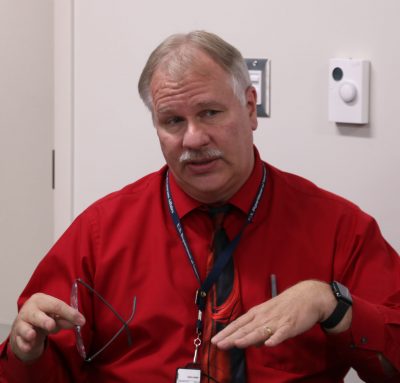
Dr. Mark Worley, chief of staff at the Veterans Health Care System of the Ozarks, said the Fayetteville VA increased staffing in wake of the 2014 scandal in Phoenix. Photo by Kayla Nunez
Ratings, pending wait times for primary and specialty care appointments and staff turnover data all show that the Fayetteville VA outscored other local VA hospitals serving Arkansas veterans, facilities in Little Rock, Shreveport and Memphis.
The Fayetteville VA scored 86 percent for its routine primary care versus 83 percent for the Little Rock VA. This approval rating is called a SHEP score — a Survey of Healthcare Experiences of Patients, through which patients give feedback to the VA by rating services. The story was reversed, however, with routine specialty care, where Little Rock received a score of 88 percent, 2 percentage points higher than Fayetteville.
Of the 297 veterans who contributed to the Fayetteville VA’s score in 2016, 74 percent said they would recommend the hospital, while 64 percent of the veterans that contributed to the Little Rock VA’s score said the same.
The wait for primary care was about two days at the Fayetteville VA system, much better than the average five-day wait nationally, according to an analysis of VA data by the Razorback Reporter. Yet for specialty care, Fayetteville veterans waited about six days for an appointment, slightly shorter than the nine day national average. This follows a general trend of improvement in wait times nationally, where the veterans typically wait about five days to see a primary care clinician in 2017, an improvement of about two days since 2014.
One area of improvement would be urgent specialty care. The Fayetteville VA holds about a 70 percent approval rating for its urgent specialty care from veterans who have completed appointments, while the Little Rock VA holds about an 80 percent approval rating. Fayetteville is rated lower for urgent care than routine care, with a 71 percent approval rating for urgent primary care and 70 percent for urgent specialty care.
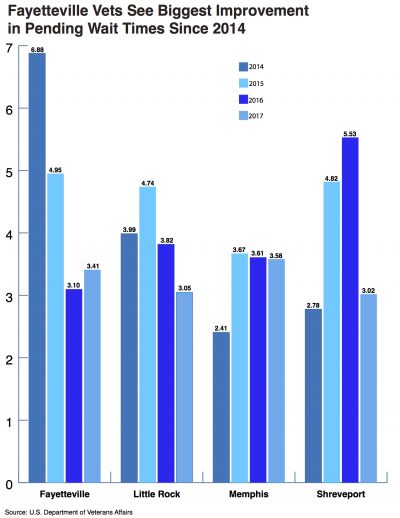
Dustin Thompson, 39, has been going to the Fayetteville VA hospital for 14 years and has had a “very good experience,” he said. He agreed that the wait times were around two days for primary care appointments and around five days for specialty care appointments.
Waiting for specialty care remains an area for improvement, according to data and interviews.
For Calhoun, being referred to a third-party cancer specialist lengthened the entire process into about three months of scheduling issues.
“Before you can go back to that third-party for a checkup, you have to go back to the VA for them to evaluate you again to then send you back out to that third-party again,” he said.
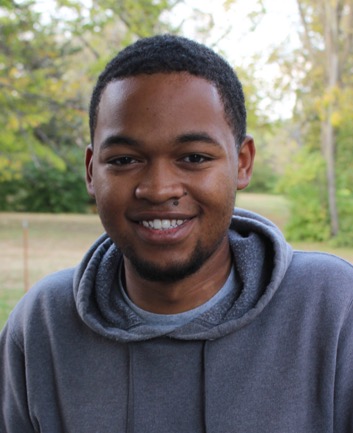
Derrick Calhoun, president of the Razorback Student Veterans at the University of Arkansas, said he uses the Fayetteville VA for primary care but needs to go elsewhere for specialty services. Photo by Chase Reavis
Patients who have gone through this long “back and forth” process might be angry, leading to them negatively scoring the Fayetteville VA, Calhoun said.
Others seeking specialty services have been very pleased, including a transgender veteran undergoing transition. Teri Wright, 46, said while the VA system will not cover gender reassignment surgery, they covered the pre-care and post-care. They also have a clinic for vocal therapy related to voice changes from hormone treatments. “They are very supportive,” Wright said.
Voice therapy is when a speech pathologist teaches someone undergoing hormone replacement therapy how to manage voice changes, said Amy Tucker, LGBT veteran care coordinator for the Fayetteville VA.
Regarding wait times, Wright said that getting an appointment at the Fayetteville VA is “faster than trying to get into Washington Regional.”
Worley said the back and forth communication between the VA and providers in the community takes what the VA was designed to be — a low-cost, high-quality medical center — and makes it into a “fragmented, much more expensive health care system,” Worley said.
Despite these challenges, numerous veterans interviewed by the Razorback Reporter gave the Veterans Health Care System of the Ozarks high reviews.
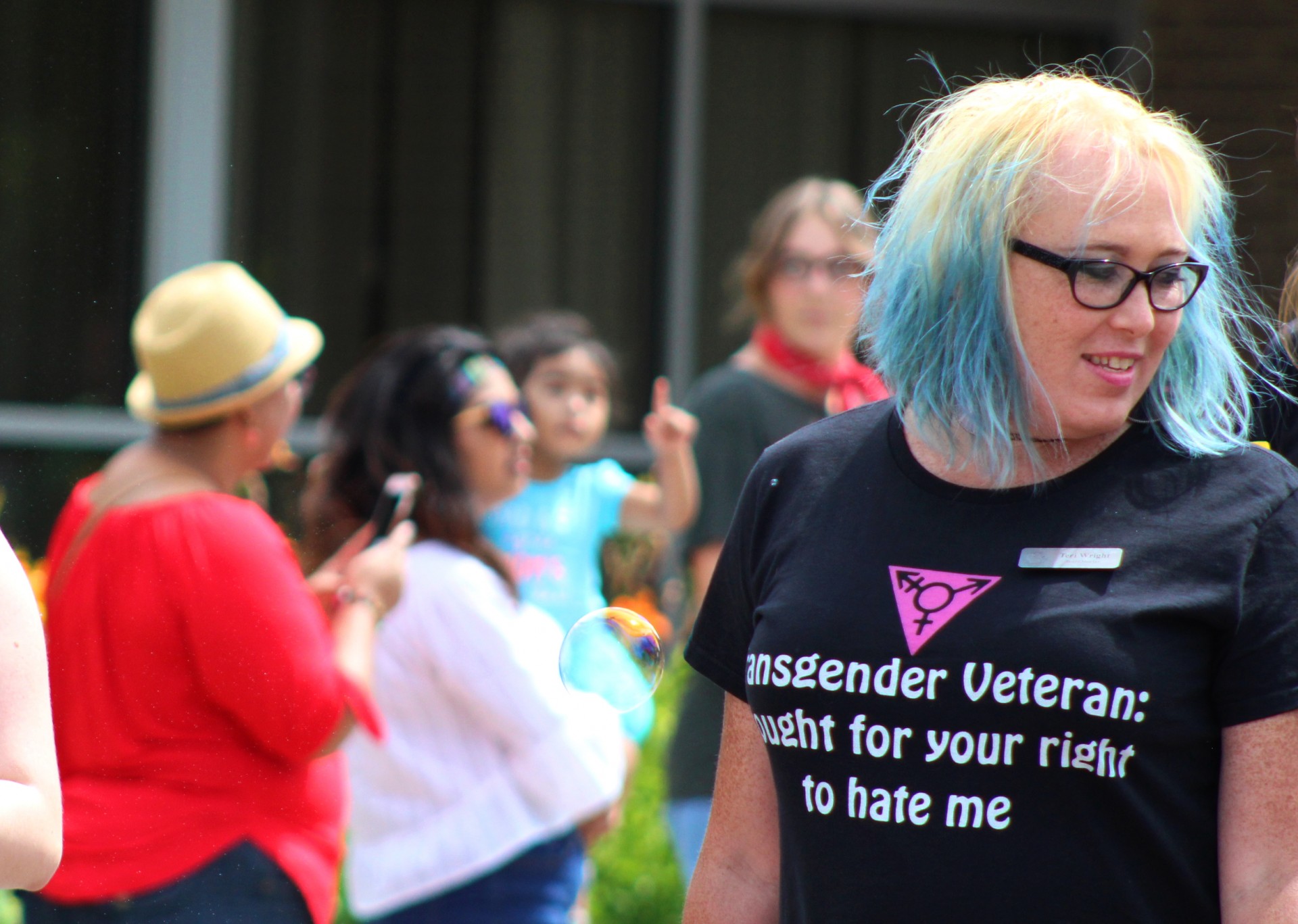
Veteran Teri Wright marches in NWA Center for Equality’s Pride Parade on Dickson Street on June 24. Photo Chase Reavis
Dennis Johnson, 67, a Van Buren, Arkansas, resident who uses the Fayetteville VA, was among those who thinks the Fayetteville VA offers good service to local veterans.
“I’ve not had to wait long for anything I’ve had done at Fayetteville, and I’ve had several things done there,” Johnson said. “The only thing I consider long is time between regular checkups.”
Fred Buckle, 66, is from Lincoln, Arkansas, and has also gone to the VA hospitals in Oklahoma City and Little Rock, but the Fayetteville VA has been the best out of the three, he said. On a scale of one to 10, Buckle said Fayetteville ranks a 10 while the other two come in at a seven. The biggest difference among the three was how personable the employees were, he said.
Buckle served in the U.S. Army from 1970 to the end of Operation Desert Storm in the early 1990s, rising to the rank of staff sergeant, but had not used the Fayetteville VA until about five years ago. He used civilian doctors for the longest time but made the switch when his post-traumatic stress disorder became too much for him to deal with, he said.
The illness cost him his job and his marriage. He even contemplated suicide and almost carried through with it once.
“I would get real agitated, say the wrong thing and then just feel real terrible afterwards,” Buckle said. “I just wasn’t fun to be around.”
It was a wake-up call for him, and the doctors at the Fayetteville VA have helped him through his PTSD, he said.
The Razorback Reporter analysis showed a drop in pending wait times since 2014 despite a 38 percent rise in patients. The percentage of pending wait times over 30 days for Fayetteville fell from 6.88 percent in October 2014 to 3.41 percent in October 2017 according to the data even though Fayetteville sees about 54,000 patients a year. Little Rock’s VA system also showed a decline in pending wait times to 3.05 percent waiting more than 30 days, down a percentage point from the same time in 2014.
The Memphis VA Medical Center, which serves veterans in eastern Arkansas, had the worst pending wait time percentage for appointments over 30 days, out of the four hospitals that were compared. The Memphis VA had 3.58 percent of its wait times scheduled after 30 days.
The Shreveport VA, which serves southern Arkansans, had the second-shortest percentage of wait times over 30 days, coming in at 3.02 percent in 2017..
The Razorback Reporter analysis showed the Fayetteville VA could improve on its mental health services.
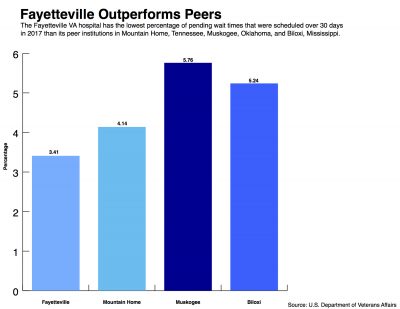
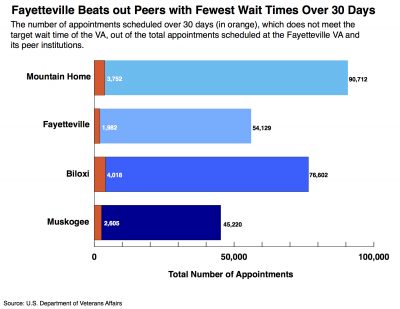 The time it takes for veterans to see a mental health care specialist – a counselor, psychiatrist or therapist – jumped from fewer than two days to nearly five days in 2017. Comparatively, the other VA hospitals serving Arkansas had better pending wait times for mental health care: Shreveport VA was at 2.6 days, Little Rock at 4.3 days and Memphis at 4.5 days.
The time it takes for veterans to see a mental health care specialist – a counselor, psychiatrist or therapist – jumped from fewer than two days to nearly five days in 2017. Comparatively, the other VA hospitals serving Arkansas had better pending wait times for mental health care: Shreveport VA was at 2.6 days, Little Rock at 4.3 days and Memphis at 4.5 days.
Staffing turnover at the Fayetteville hospital has been fairly consistent in a few different occupations including primary care teams, psychiatrists and family practice medical teams.
“We had a fairly high turnover of family medicine teams, and over the period of time between 2011 and 2013, we actually lost 54 percent of doctors, of our primary care physicians,” Worley said. Staffing increased, however, since 2014.
Worley pointed to several reasons for the loss of doctors. One of the them was the federal employee pay freeze former president Barack Obama ordered in 2010 that went on for two years.
VA doctors make around $20,000 to $30,000 less than what they could in the private sector, so keeping them employed was already difficult, but the pay freeze compounded the problem, Worley said.
“You could hire new physicians at a higher rate but couldn’t raise the salaries,” Worley said. “It was the unintended consequences of federal policies.”
Most of the doctors who left the Fayetteville VA during the time span quit and retired because they were eligible for retirement benefits, Worley said.
“The average employee you hire, you can think of as a 20- to 30-year investment in the federal system,” Worley said.
The VA hospital loses an estimated 10 percent of its staff per year, Worley said. The Fayetteville VA lost 45 medical teams during that time frame.
One change Buckle would like to see at the Fayetteville VA is increasing the number of therapists and counselors the hospital employs.
He’s seen different people at the VA for different reasons but has had some of those people switch positions, which meant he could no longer see them, he said.
“There’s just not enough qualified people,” he said.
Fayetteville VA Sees Drop In Rating, Outperforms Peers
By Alex Nicoll and Chase Reavis
The Fayetteville VA hospital, or Veterans Health Care System of the Ozarks, has been working to improve its service following increased attention from the federal government.
One measure is the VA’s SAIL rating, or Strategic Analytics for Improvement and Learning Value Model, which measures the quality of VA medical centers based on death rate, complications, patient satisfaction, efficiency and physician capacity. The Veteran Heath System of the Ozarks saw its SAIL rating rise from two stars in 2015 to the top level of five stars in 2016. The Fayetteville VA’s SAIL rating saw a recent drop, though, from a five- to a four-star rating in the third quarter for 2017.
Of the 146 VA Medical Centers nationwide, 86 percent showed improvement from 2015 to 2016, but only 64 percent showed improvement from 2016 to 2017, according to the U.S. Deptartment of Veterans Affairs. The Fayetteville VA system was not the only Arkansas veterans health system to see a decline in the SAIL rating in 2017. The Little Rock VA dropped from a three- to a two-star rating. The Memphis VA, which serves eastern Arkansas, remained as a one-star facility from 2015 to 2017, but its services are improving, according to the U.S. Deptartment of Veteran Affairs. The Shreveport VA, which serves southern Arkansas, rose from a two- to a three-star facility between 2016 and 2017.
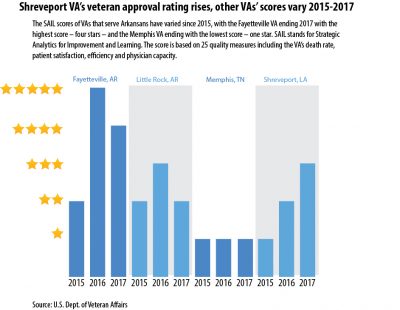
The Fayetteville Health Care System of the Ozarks is more directly compared to VA facilities with similar services and patient traffic. Among those peer hospitals, the Muskogee, Oklahoma, VA medical center remained as a two-star facility in 2017 while the VA medical center in Biloxi, Mississippi, remained as a one-star facility, according to the Department of Veteran Affairs. The Mountain Home VA Healthcare System in eastern Tennessee remained as a four-star facility in the same year.
The Fayetteville VA Medical Center’s lowered SAIL rating does not necessarily indicate a decline in service, said Mark Worley, the Fayetteville VA hospital’s chief of staff. The star ratings are ba
sed on comparisons between VAs, and so Worley said the rating decline shows the Fayetteville VA is not improving at the same rate as other VAs nationwide.
“We’re actually doing fairly well,” Worley said. “If you look at our numbers … of what we are compared to the average Medicare or Medicaid, we blow all of those folks out of the water. It’s not even funny.”
The Fayetteville VA holds an 86 percent approval rating for its routine primary care from veterans who have completed appointments.